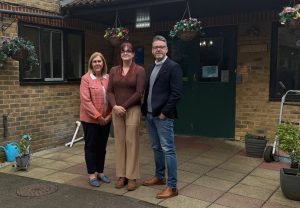£200m for new technology centres but are they enough?

THE Government has pledged more than £200m to create a network of elite Technology and Innovation Centres tasked with driving growth in the UK’s most high-tech industries.
The centres, which were announced by Prime Minister David Cameron in a speech to the CBI yesterday, will bridge the gap between universities and businesses, helping to commercialise the outputs of Britain’s world-class research base.
They will receive the money over the next four years, supporting businesses in developing and commercialising new technology.
The head of Birmingham Science Park – Aston, David Hardman gave a cautious welcome to the proposals.
He said: “The original concept behind the TICs as espoused by Herman Hausser provided for technology specific centres promoting research excellence and effective technology translation to support business sectors identified as important to the UK economy.
“Initiatives supporting the knowledge economy are to be generally welcomed, but until we know where the TICs are going to be based, alongside which universities, it is not possible to judge the effect they will have on the West Midlands’ economy.
“It is also true to say that any effects will be in the mid-term and not have an immediate impact on the local economy in terms of supporting new ventures.”
- Private sector job challenge is massive task – Bailey
- Businesses welcome Prime Minister’s focus on growth
- Manufacturing set for boost on export growth
Mr Hardman said he was convinced the Government should also consider centres that already exist as interfaces between the science base and the commercial world – the current UK science parks and innovation centres.
“Even with TICs added into the mix, science parks can play a catalytic role driving new products and services towards the market place. Indeed I would suggest even with TICs, science parks need to be integrated into the offering to ensure more effective translation of ideas and innovative technologies into commercial reality. The good science parks are already places where businesses are connected to innovative technologies, where expertise and experience helps the commercialisation process and where financiers look for investment opportunities.”
Professor David Bailey, of Coventry Business School, said the TICs were a positive step but would need to support sectors such as advanced manufacturing if the effect was to be beneficial to the economy.
Under Mr Cameron’s proposals each centre will focus on a specific technology where there is a potentially large global market and a significant UK capability.
The network will be established and overseen by the Technology Strategy Board (TSB) but individual centres will have a high degree of autonomy.
The TSB will determine which existing centres to invest in by April next year and will then consider requirements for new centres.
Dave Croston, patent attorney at Withers & Rogers’ Midlands office in Leamington Spa, said: “Bringing German-style technology innovation centres to the UK could significantly boost R&D activity and encourage more innovation-led businesses in the region to capture the commercial value of their inventions and in so doing, create wealth and jobs.”








